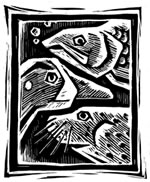- Home
- Restoration Projects
- Project Search
- Were Pink Salmon Embryo Studies in PWS Biased? 02492
Project Information
Title: Were Pink Salmon Embryo Studies in PWS Biased? 02492
Project Year and Number: 2002: 02492
Other Fiscal Years and Numbers for this Project: 2001: 01492
Principal Investigator (PI): John Thedinga (NOAA)
Managing Agency: NOAA
Assisting Personnel: Mark Carls, Ron Heintz, Jacek Maselko, Jeep Rice, Robert Thomas
Research Location: Auke Bay Laboratory
Restoration Category: Research
Injured Resources Addressed: Pink Salmon
Abstract: Effects of the oil spill on wild pink salmon embryo survival in Prince William Sound are disputed among government- and industry-sponsored researchers. Exxon contends that the government's conclusions that reduced embryo viability in oiled streams was caused by persistent oil contamination were biased because sampling times were earlier in oiled streams than in reference streams. Experimental studies to determine the ability to discriminate eggs killed by sampling (shock mortality) and previously dead eggs were conducted to help ascertain if estimates of embryo survival in the sound were accurate or biased. Preliminary results indicate that shock resistance of eggs increased in a sigmoidal fashion from the end of September to mid-November and that the timing of egg examination after being pumped from a stream is critical in differentiating shocked eggs from previously dead eggs. By removing eggs pumped from stream gravel soon after sampling, shocked eggs were easily discernible and could easily be separated from previously dead eggs. These results suggest that further examination of procedures used for egg sampling in the sound following the oil spill would not help clarify the controversy over potential biased estimates of egg survival.Proposal: View (105 KB)
Reports:
Final Report: See Project 01492
Publications from this Project: None Available
